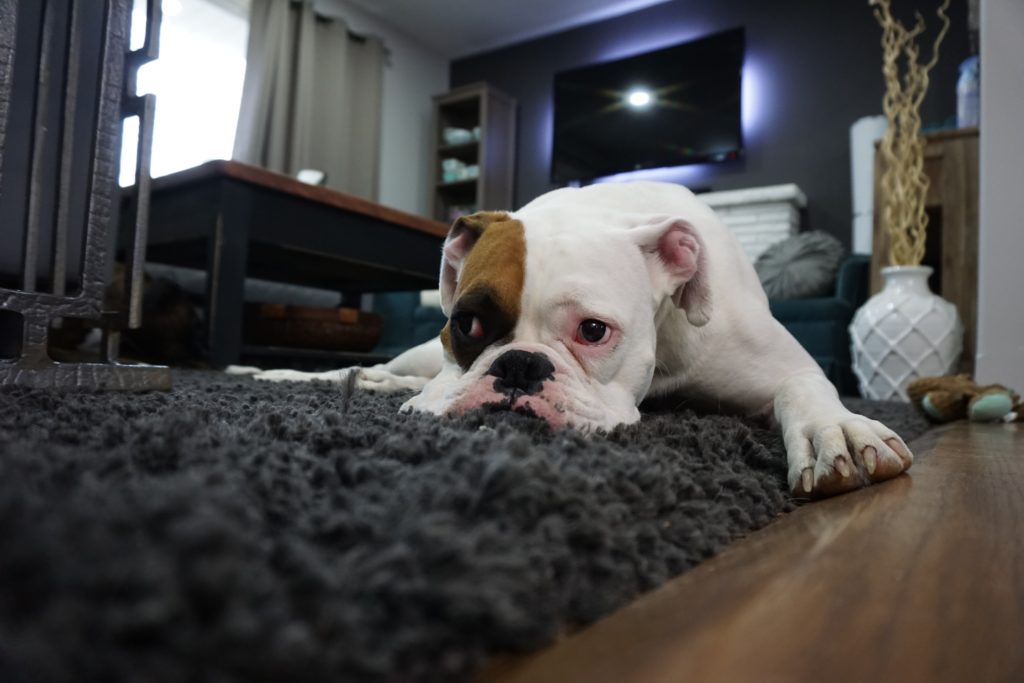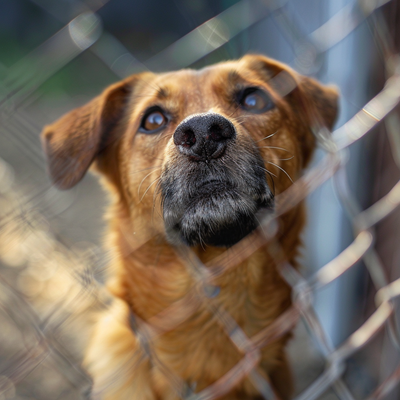Signs of Dog Depression: Symptoms, Causes, and Treatment

Just like people, dogs can suffer from depression. Depression in dogs can be a lifelong issue they deal with or come in short term bouts. The causes of dog depression vary as much as potential treatments. Identifying the cause of your dog’s issues will be vital in determining the proper course of action to get them back to feeling great and keeping them healthy and happy.
Can Dogs Get Depressed?
Due to the obvious communication challenges between humans and dogs, veterinarians still aren’t sure if dogs suffer from depression as we understand it. The prevailing opinion seems to be that dogs CAN experience short-term bouts of feeling “down”—especially during life events that are stressful or anxiety-producing. But the good news is, dogs are NOT likely to suffer from long-term depression the way people do.
Dog Depression Symptoms
There is no one symptom of depression. Lethargy, not eating or eating less than usual, showing no or less interest in play time or receiving affection, isolating themselves from members of their family (both human and canine) can all be dog depression symptoms. Due to lack of eating, sudden and drastic weight loss can lead to a whole host of other health issues not directly related to their mental health.
Just because your dog may be showing one or all of the symptoms does not necessarily mean they have depression. If you do notice any of these you should bring your dog to a veterinarian to be fully checked out especially if the change happens suddenly. Lyme disease, for example, and many other health issues can have similar symptoms.
Dog Depression Causes
One of the most common reasons for dog depression is a change in the dog’s environment. Even if the change is for the better, such as rescuing a dog from a shelter or a bad home, a new house can hamper your dogs mental health.
Grief is another major cause. If you had a death in the family, you may not be the only one mourning. According to one study of over 400 dog and cat owners, 75% reported behavioral changes in their surviving animals. The behavioral changes varied from seeking more attention from their owners (typical needy behavior) to seeking less attention, eating less and lethargy/laziness. This particular study focused on the death of another animal in the home, not losing a person the dog was close to.
Picking up on your emotions can also lead a dog to be depressed. If you, especially as the primary caretaker of the dog, are depressed or particularly inactive it can negatively affect them as well. Dogs have been shown to be very adept at adjusting their mood to the people around them.
Virtually any health problems can also cause depression. Just like us, if you’re not feeling your best physically it can affect mood and mental health.
Dog Depression Treatment
First and foremost, your dog should be brought to their veterinarian if you think anything may be wrong. Once they have been cleared of any physical health issues you can start working on your furry friends mental health.
There are medications you can give your dog to help with depression. The same medications that are often prescribed to people with depression can be given to a dog. You will always want to consult your vet before giving any prescription medication to your dog. Do not just start your dog on an antidepressant without proper medical clearance.
Most of the time depression in dogs can pass without medicating the animal. It can take days, weeks, or even months but most dogs will pull through without the need for pills. There are many reasons why your dog could be feeling down, and we’ve put together our advice to address some common causes of dog depression.
Exercise
One of the best ways to get your dog out of their slump is getting more active. Exercise has been shown to increase our feel good hormones and chemicals and the same is true for your furry friend. Getting out and walking the dog more often and having more play sessions may be all they need to pick themselves up.
Rewarding Happy Behavior
Whether you are housebreaking a new pup or training an old dog new tricks, they thrive off positive reinforcement. This is true of reinforcing most behaviors. When you see your depressed dog playing or asking for affection, rewarding that behavior will help cement that feeling in their mind.
You will also not want to reward depressed behavior. Sometimes our first instinct when seeing a moping dog is to give treats or affection to brighten their mood. Doing this may cause your dog to think you are rewarding that behavior instead of trying to change it.
Environmental Change
If you believe the source of the issue may be a recent move, try to make sure you have some of their favorite old toys, bedding and other items around that will help the transition. This is something that the dog will typically pull themselves out of after a time. Once they become accustomed to the new home they should perk right back up, some dogs just take longer to adjust than others.
Grief
If your dog is grieving the loss of another pet, sometimes the best way to help them out is to get another one. Even a short term fostering of another dog has been shown to make dogs happier and get them over their grief. This can be more complicated as sometimes a dog will not take to a new additional dog very well. If you decide to go this route make sure you have the dogs meet at least once, more preferably several times, before you bring the new dog into your home.
If the dog is grieving the loss of a human, whether it’s a child moving away or the death of a loved one, there is not as much you can do about it. Dogs need time to grieve just like we all do, giving the dog time and love will be the best, and your vet can advise on medication in this circumstance.
Dog Depression Medication
If nothing you are doing is helping your dog, you should consider seeking out a behavior specialist in your area. When it comes to this type of issue they may be even more qualified and experienced than your vet to help the dog. Make sure you do your research and select the right person to help your animal recover.
There is no single reason or treatment to help your dog with depression. There is typically a root cause but many factors play into mental health of both humans and dogs. Your dog may be suffering from several situations at once which can build on top of each other. As such instead of only doing one treatment, try multiple. Get your dog more exercise, reward happy behavior, keep their environment as steady as possible, look into possible medication as well. Some of the most commonly prescribed options include buspirone, fluoxetine, and clomipramine.
Sometimes a single treatment is just one piece of the puzzle and putting all of them together will greatly benefit your animal and your relationship to them.







![How to Train a Search and Rescue Dog [Dog Trainer Explains]](http://shop.bullymax.com/cdn/shop/articles/Search_and_Rescue_Dogs_in_dog_training_court.jpg?v=1713867590&width=400)


3 comments
I have a new puppy,my dog won’t have anything to do with it or me,what do I do to help him to get back to his. Loving self?
I am sorry to hear about your wife’s diagnosis. Dogs can form strong bonds with their owners and can feel depressed when separated from them.
One idea that came to my mind is to have video calls with your wife. If she can talk to your dog, it might help. Hearing her voice and seeing her face could provide some comfort to your dog. Additionally, keeping an item that smells like your wife near the dog can also provide comfort, as dogs rely heavily on their sense of smell.
If your dog’s depression seems to persist or worsen, it may be necessary to consult with a veterinarian or a professional animal behaviorist.
My wife was recently diagnosed with a brain aneurysm and will not be home for many months. She and the dog are ‘soulmates’. The dog is severely depressed, I have no idea as to what to do. She is breaking my heart